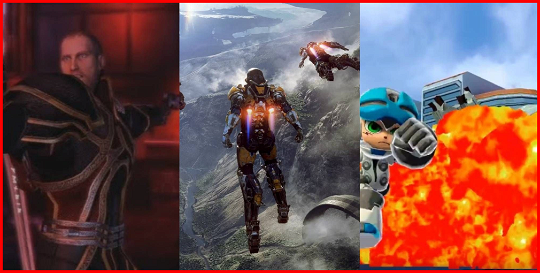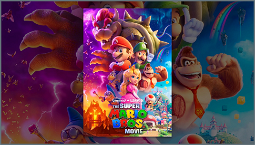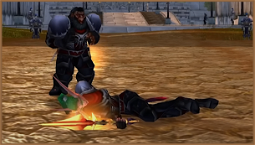These games had brilliant concepts, but flawed delivery left players disappointed and wanting more
So you’ve got a great idea for a game? A fascinating setting, a captivating gameplay hook, or maybe just a novel way to use an old mechanic. But if you’re not careful, even the most promising beginnings can lead to disappointing results. From No Man’s Sky to Aliens: Colonial Marines, these 12 games serve as cautionary tales – reminders that, no matter how great your idea is, execution is crucial in delivering a satisfying gaming experience.
No Man’s Sky
No Man’s Sky promised endless exploration and discovery, but fell short with repetitive gameplay and a lack of meaningful content. The game was at its best when you were simply exploring the vast, beautiful planets, but the limited resources and hostile Sentinels meant that you couldn’t stay for long, and the procedural generation of the planets often left them feeling barren or repetitive.
The Order: 1886
A stunning visual style and an intriguing setting couldn’t save The Order: 1886 from its short length and linear gameplay. While the game’s story and presentation were strong, it was clear developer Ready at Dawn wanted to keep the gameplay as simple and accessible as possible, which meant it was easy to see how the game would play out long before you even picked it up.
Necropolis
Necropolis boasted an intriguing aesthetic and procedurally generated dungeons, but it ultimately fell flat. While the combat mechanics were fun, the repetitive level design and shallow combat meant that it quickly became tiresome.
Advent Rising
Advent Rising promised an epic sci-fi journey, but it never quite hit the heights it aspired to. The gameplay was passable, if a little derivative, but the game was plagued with technical issues, and the story never quite delivered on its fascinating premise. The game also suffered from an unsatisfying ending, leaving fans disappointed.
Daikatana
Before John Romero was a partner at Bigfish Games, he was an ambitious game developer with a reputation for over-promising and under-delivering. His most infamous project is Daikatana, an early first-person shooter which, despite having a team of industry veterans and a six-figure ad campaign, ended up as one of the most notorious failures in gaming history.
The game’s problems were legion. The graphics were outdated, the level design was exasperating, and the companion AI was clumsy. But perhaps the most egregious error was that, while it was a shooter that promised to revolutionise the genre, it didn’t actually have all that many guns.
Alpha Protocol
Alpha Protocol was another ambitious game that, despite its many flaws, still manages to capture the imagination of PC gamers to this day. Its branching narrative and reactive choices allowed for a near-infinite number of storylines and outcomes, but the RPG’s clunky combat and technical glitches often got in the way of the story.
Too Human
Too Human seemed like the answer to gamers’ prayers when it arrived after a lengthy development period. A fusion of Norse mythology and futuristic elements, Too Human promised exciting action-RPG gameplay, but it ultimately delivered flawed combat and a disjointed narrative.
Fable: The Journey
Fable: The Journey aimed to bring motion-controlled gaming to the Fable series, but the first game in the series to use Kinect left players underwhelmed. While the combat was satisfying, the lack of content and imprecise controls meant that the game couldn’t quite live up to its full potential.
Brink
Brink was another ambitious shooter that aimed to revolutionise the genre, but its shallow gameplay mechanics, poor AI, and lack of content left players disappointed. While the game’s parkour movement was a delight and the gunplay satisfying, the shallow multiplayer and lack of content meant that many players stopped playing the game before they could even finish it.
Aliens: Colonial Marines
Aliens: Colonial Marines looked the part. It boasted the same atmosphere and Horror of the films, but its shallow gameplay and poor AI meant that it never quite captured the spirit of James Cameron’s iconic series. The game was often compared to a poor man’s Halo, but even the Master Chief would have struggled to make it through some of Aliens: Colonial Marines’ missions.
Anthem
Anthem promised an ambitious sci-fi adventure, but ultimately failed to deliver. While the gameplay mechanics were a delight, technical issues and a shallow story left fans underwhelmed. The game’s linear mission structure and repetitive gameplay also meant that it was easy to get bored and move on to something else.
Mighty No. 9
Keiji Inafune’s spiritual successor to Mega Man was a long time coming, but ultimately left fans underwhelmed. Despite being a fun platformer, clunky controls and uninspired level design meant that the game felt more like a poor man’s Mario than a worthy successor to one of the greatest games of all time.















